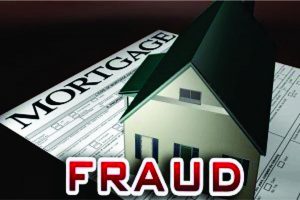
The current health crisis is revealing another level of evil, Mortgage Fraud. The COVID-19 pandemic, it seems has opened up a gateway allowing opportunists to benefit from the current situation. Many property owners are finding it difficult to make their mortgage payments due to a lack of work and income. As a result, more than 710,000 mortgage deferrals or skipped payments have been negotiated, in part enabling certain fraudulent activity.This type of fraud seems to fall under three headings:
Title Fraud:
First, the fraudster must commit identity theft. Victims are usually older and mortgage-free or have little left to pay off on their property. Quite often it may be as a result of home owners going South for the winter, for example. While the house is unoccupied, clever fraudsters can often take advantage of the situation to garner all kinds of information on the owners, e.g. if the mail is not picked up on a regular basis, no cars in the driveway, no tracks in the snow.
The fraudster may use data that has been stolen usually from Credit Card, Mail or email interception, phone scams and/or phishing attacks.
Given that more than one million Canadians lost their jobs since March, fraudsters are using phony job offers to gather personal information directly from job-seekers.
Once they have captured the required data, these con-men make fake identification with their own pictures and then forge documents, such as titles to property. The scammers, then claiming to be the owners, will remortgage the property. If the property is mortgage-free, they can walk away with up to 80 per cent of its value!While the risk is often minimal in title fraud, the rewards can be substantial with a single transaction bringing in hundreds of thousands of dollars. Scammers can also apply for a credit card in your name, on a home equity line of credit for example, and give another delivery address and telephone number. You’ll only find out about it when the collection agency calls and then you’ll have to prove you knew nothing about it.
Foreclosure Fraud:
According to the Financial Consumer Agency of Canada, Foreclosure fraud usually happens when home owners are having problems making their mortgage payments. They may be tricked into transferring property title to somebody to get a loan that will help them make their payments.The goal is to get the victim to sign a first, second or even third mortgage, or a builders’ legal hypothec (that ensures the owner of the property cannot sell without payment of debts to builders and renovators) or lien, thereby allowing the fraudster’s name to appear on the title. After that, all the fraudster needs to do to foreclose on the mortgage is to instigate a loan default, on the pretense that the victim failed to comply with some vague clause. If the victim is unable to pay, they will have no choice but to sell the property in order to repay the lender.
According to the Financial Consumer Agency of Canada, “Foreclosure fraud usually happens when you are having problems making your mortgage payments. You may be tricked into transferring your property title to somebody to get a loan that will help you make your payments.
Fraudsters usually keep the payments they make and also possess the title to their home, which they can resell or remortgage.
Victims often don’t realize they’ve been scammed, so they don’t file complaints.
How can an owner protect himself? Never accept offers from debt consolidation or financial reorganization companies on social media, and don’t call the numbers on We buy houses for cash signs, which are strategically placed to attract specific property owners. The best option is to consult an independent professional.
Mortgage Fraud:
This type of fraud generally occurs between the bank and the notary, by way of the broker. For example, in an effort to become a home owner, vital details on the application are altered to make it look to a lender that the purchaser is financially secure enough to purchase the property. For example, an income of $50,000 becomes $85,000. In another, credit scores are altered. In 2015, A good example of the effects of such activities – Home Capital Group Inc., one of Canada’s largest alternative mortgage lenders, cut ties with 45 mortgage brokers—who had supplied it with $960 million worth of mortgage applications—after receiving anonymous information that they were forging employment letters and income statements! This almost proved to be disastrous for Home Capital once the magnitude of the scam was revealed, but fortunately they overcame this horrendous period and prevailed.
If the clients were to learn about the fraud, they could sue the bank, claiming that their application should never have been approved.